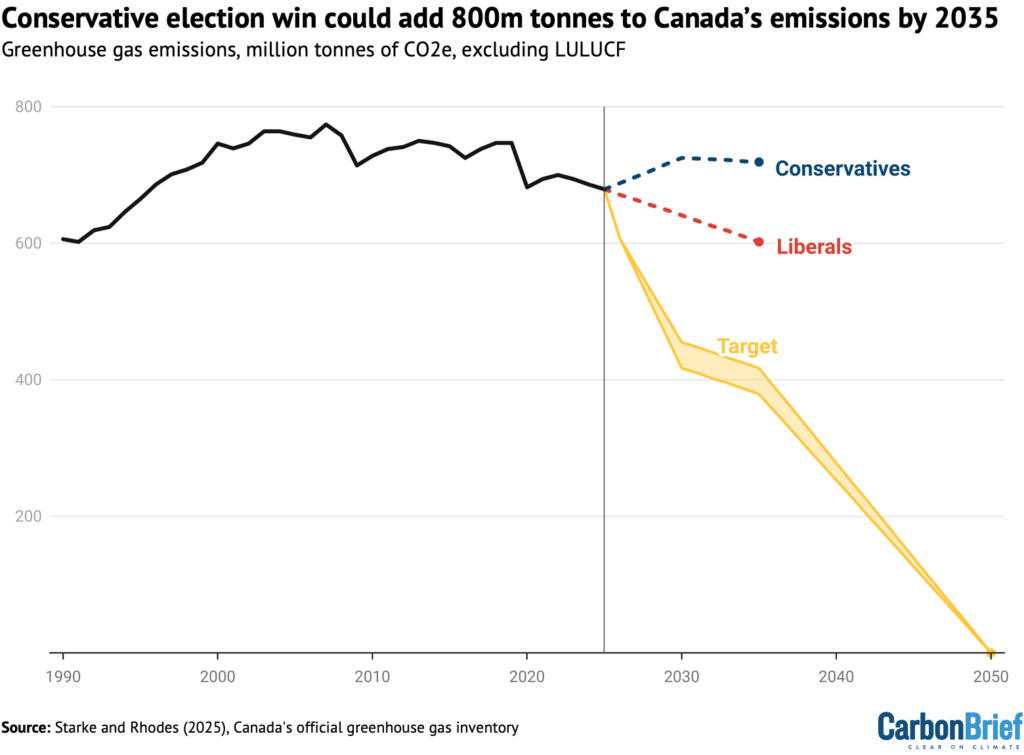A Conservative election win in Canada could add 800 million tonnes of climate emissions over the next decade
Today is election day in Canada. If the Conservatives win, climate emissions risk increasing by almost 800 million tonnes over the next decade. But the Liberal Party is nowhere near the climate targets either.
A victory for Pierre Poilievre and his Conservative party over the incumbent Liberals would see greenhouse gas emissions rise significantly and lead to nearly 800 million extra tonnes of greenhouse gas emissions over the next decade. In comparison, greenhouse gas emissions would likely continue to fall modestly under the policies currently backed by Mark Carney’s Liberal party, that’s according to an analysis done by Carbon Brief.

“The impact of these rollbacks is illustrated by the “Conservatives” line in the figure below, based on the party’s climate-related announcements to date. Notably, Canada’s emissions would be expected to start rising again, reversing some of the recent decline.
The “Liberals” line is based on current federal policies, excluding the consumer carbon tax. It would see a continued, steady drop in emissions if the Liberals retain power, even if they fail to implement any new climate policies after the election.
As such, a Conservative victory could mean an additional 771m tonnes of carbon dioxide equivalent (MtCO2e) entering the atmosphere by 2035.”
But the analysis of the two main political parties’ climate policies in the Canadian election also show that neither of the two parties would put Canada on track to reach its climate target to cut emissions to net-zero by 2050.
That’s not surprising considering that the Conservatives have pledged to cut some of Canada’s key climate regulations as well as the industrial carbon pricing — one of the country’s most significant climate policies. Poilievre has also called the Liberal government’s climate policies “net-zero environmental extremism” and that Carney is part of the “radical net-zero movement”.
As a result of this political pushback from the right, one of Carney’s first action when he took office after Justin Trudeau was to lower a specific consumer carbon tax to zero — effectively trashing his own party’s signature climate policy. Despite this, Poilievre has promised to completely “axe the tax”.
While Canada has seen a modest decrease in greenhouse gas emissions over the past decade it’s emissions cuts are still lagging behind other, similar, global-north economies — such as Germany and the UK which has both managed to roughly half their emissions (from 1990 levels). And Canada’s per-capita emissions are still three times higher than the EU average. It’s clear that even if the Liberals win today’s election, Canada still needs to implement much more ambitious climate measures and policies if it’s ever going to reach its target to cut emissions to net-zero by 2050.